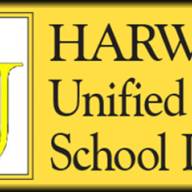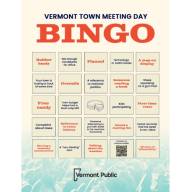As an advanced Spanish student, memorization and language acquisition is key to my success in class. My teacher uses what is called a “flipped classroom”—we familiarize ourselves with the vocabulary outside of class and discuss it in class instead of taking class time to learn it.
My teacher used a website called Quizlet to help us study, where she would create a set of digital flashcards with the vocabulary we needed and we could study it on our own via quizzes and games. One day, when I logged onto Quizlet to study, I was greeted with the large blue lock and its corresponding text informing me that the administration had blocked the site. I emailed my teacher, but there was nothing else I could do: I could only access the flashcard set I needed on my computer, but every computer with a HUUSD account is barred from accessing the site at all.
“It’s better to translate a word with a picture,” my teacher, Laura Wedel, told me. “With Quizlet, you can study the Spanish words with an image and never go through the English word. But when you make flashcards, you have to write the Spanish word and the English translation and translate back and forth. As far as studying goes, we can absolutely adjust to it; it’s just the gamification of studying and the instant gratification that students have gotten used to is rough.”
Quizlet, and multiple other companies, have been blocked due to their release of Personal Identifiable Information (PII) and their refusal to sign a Data Processing Agreement, or a DPA. A DPA is a contract between a data controller (in this case, the school district) and a data processor (Quizlet) that controls the selling of personal data processing for business purposes.
FERPA (Family Education Rights and Privacy Act, a federal law that was passed in 1974) states that student information is protected from disclosure to third parties when there is no parental consent. The school district offers DPAs to businesses asking them to protect student data, and if that agreement cannot be reached, students are barred from accessing the website.
“As language teachers, a lot of what we teach is how to learn a language,” fellow language teacher Nikki Matheson said. “I would much rather come up with other study methods than put student information in jeopardy.”













